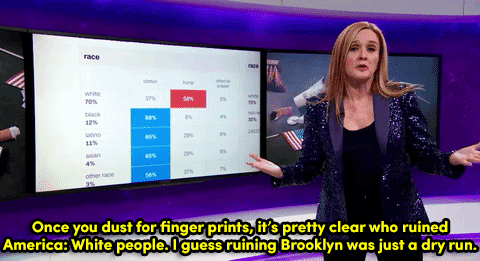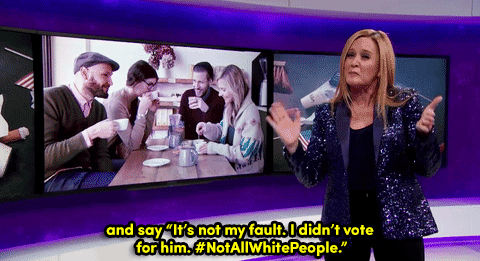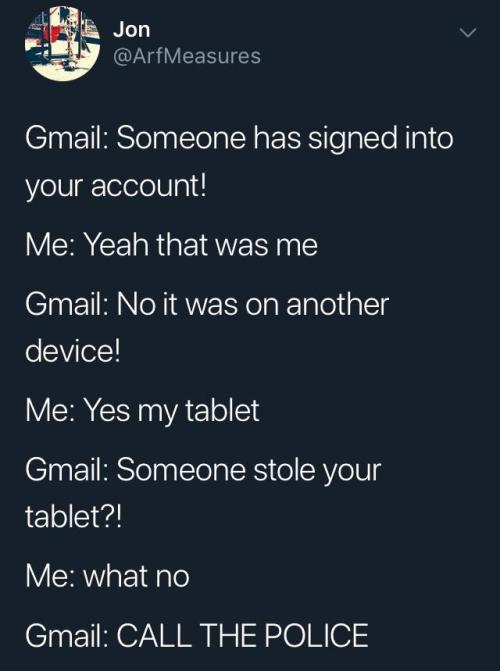Technicallybluedelusion - Untitled
More Posts from Technicallybluedelusion and Others
Some Fountains That Are Pretty Amazing.
Osaka Station Fountain-Clock, Osaka, Japan

Water Boat Fountain, Valencia, Spain

Magic Tap, Cadiz, Spain

Vortex Fountain ‘Charybdis’, Sunderland, UK

Cascades Of Hercules Monument, Kassel, Germany

“Tunnel Of Surprises”, Lima, Peru

Keller Fountain, Portland, Oregon, USA

Bodhisattva Avalokiteshvara Fountain, Ancient City, Thailand

Fountain At The Smithsonian National Museum Of African American History & Culture, Washington, D.C., USA

Trevi Fountain, Rome, Italy

‘the Divers Fountain’, Dubai, United Arab Emirates

Giant - Entrance To The Swarovski Kristallwelten (Crystal Worlds), Wattens, Austria

Banpo Bridge, Seoul, South Korea

‘The Mustangs Of Las Colinas’, Texas, USA






United States World Cup winner Hope Solo says that the disparity in prize money at the men’s and women’s World Cups shows that “male chauvinism is entrenched” in Fifa.
World football’s governing body says the £24m awarded to participating teams in 2019 is double the amount of 2015, but £315m was given to teams at the men’s 2018 tournament.
Australia’s players’ union says the difference - which has increased by £21m in the past four years - amounts to “discrimination”.
There are 24 teams in the 2019 Women’s World Cup while there were 32 in the men’s 2018 tournament.
“There is no excuse for that increase in this day and age,” former goalkeeper Solo, who is leading a lawsuit against US Soccer over equal pay, told BBC Sport.
“Being honest, it tells me that male chauvinism is entrenched in our global federation and these disparities are a reflection of that.
“We shouldn’t have to take these issues to courts and send letters to Fifa.”
The Women’s World Cup starts in France on Friday,
Fifa says prize money has increased five-fold since the 2007 tournament, and extra payments for teams’ preparations has taken its investment to £39m compared to £12m four years ago.
But if comparing prize money at the men’s World Cup and women’s World Cups, there was a £270m difference for the 2014 and 2015 tournaments, which has increased to £291m for the 2018 and 2019 editions.
Professional Footballers Australia has written to Fifa and started a campaign about the issue.
Fifa’s chief women’s football officer Sarai Bareman has said: “Prize money for the World Cup teams is only a small part of the investment Fifa is doing for the development of women’s football around the world.”
Fifa president Gianni Infantino said last year that the prize money for the 2019 tournament was “massively higher than the last World Cup. We are making progress.”
Solo, a two-time Olympic champion, was capped 202 times during her 17-year international career and won the World Cup in 2015.
“The state of the game is in a beautiful place because of the talent alone and the commercial dollars being put in, but Fifa remain very chauvinistic when it comes to putting money into the women’s game and we really could do a lot better job,” she said.
Solo, who will work as a pundit for the BBC during the Women’s World Cup, called on other federations to support the Australian union’s stance.
“It can’t be one federation or one country here and there…. all of the federations should be behind this to further the women’s game,” she added.
“We need to put in more money from grassroots all the way up to more prize money in the World Cup. Fifa needs to get its hands a little bit wet in terms of addressing these issues and being hands on. Right now, they address the women’s game with a 20-foot pole and remain quiet.
“As a soccer family with a worldwide audience, we should be addressing these issues, and not just the women but with men too.”
Solo says the battles some women’s football players face “break her heart”.
Since she and other members of US Soccer challenged their federation about equal pay, she has learned how some players have to negotiate with their federations about whether they pay for internet access in hotels and receive tracksuits.
“Some of the minute things players are fighting for break my heart. We shouldn’t be fighting our federations for internet, or players having to pay out of their own pockets,” she said.
“I’ve done my best to reach out to other federations, and we have put our minds together, but we see that male chauvinism is still apparent.”
This is not a rejection of the Internet or your precious digital connections. If anything, you'll find you rediscover your digital agency and how it's been stripped from you! You'll engage in new ways online that put you in the drivers' seat. You'll also find your values start to shift. You'll stop asking if a service can do something for you, and instead ask what it wants from you in return--and whether that's a price worth paying, especially if it's "free."
It's also not a course for those deep into the InfoSec world (Information Security). I won't teach you how to go dark, how to move around the web entirely anonymously. But I will teach you how to take steps toward that direction, so that the path is available to you once these short weeks are up.
To that end, I will recommend systems and services that some people who are deep into infosec won't like. Internet nerds have deep and well informed opinions and controversies erupt all the time. For instance, some people recently are angry at Mozilla for some changes they are making, so they recommend not using Firefox. That's just one example. Some will be upset to find that I am still recommending Firefox -- among many other options.
Why? For one, I want to recommend user-friendly systems of many stripes. I will never tell you to just use one thing: the ball is in your court! I'll also tell you when there are concerns, some of which you may care about and others you won't. I don't think there is (or should be) one system to rule them all. There should be many options. We should use many of them, instead of just one. It's way more freeing to do so.
I also want to get you used to something new: moving. Jumping ship. Right now, we think of moving from one service to another like moving a house you've lived in for fifty years. It's a huge burden, and exhausting to even consider. This forces a kind of lock-in where users never want to leave. Tech companies count on this. Academics hand-wring over this form of lock-in, especially in social media.
But once you get started moving your data around, taking agency in how you work the web, you'll see it's actually much easier than you thought. That way, you might move to a new browser and not like it very much (for whatever reason)-- and instead of going back to Google, you'll try something new. Easy peasy. No moving company involved.
I'll clue you in to a different way to use the web. You'll pay more attention to tech gossip. You'll know if a company is doing something nefarious or making a change. You'll know what to do if so. You'll already have one foot out the door anyway.
That's because Opting Out isn't just about leaving systems we don't like -- it's about opting in to systems and communities we value instead.







do you think Lexa ever wore those skull masks that other Trikru warriors seemed to favor? who’s skull would it be? Full illustration here.
-
 spicetdusk liked this · 3 years ago
spicetdusk liked this · 3 years ago -
 fmdoodles-reblogs reblogged this · 4 years ago
fmdoodles-reblogs reblogged this · 4 years ago -
 sisistired liked this · 4 years ago
sisistired liked this · 4 years ago -
 underneaththestairs reblogged this · 4 years ago
underneaththestairs reblogged this · 4 years ago -
 daren17784 liked this · 5 years ago
daren17784 liked this · 5 years ago -
 narcissistic-goddess reblogged this · 5 years ago
narcissistic-goddess reblogged this · 5 years ago -
 technicallybluedelusion reblogged this · 5 years ago
technicallybluedelusion reblogged this · 5 years ago -
 thatwinkwonk reblogged this · 5 years ago
thatwinkwonk reblogged this · 5 years ago -
 djhkdjnkdlmlm reblogged this · 6 years ago
djhkdjnkdlmlm reblogged this · 6 years ago -
 adnarimel reblogged this · 6 years ago
adnarimel reblogged this · 6 years ago -
 moon-cloud101 reblogged this · 6 years ago
moon-cloud101 reblogged this · 6 years ago -
 outlaw-monarch liked this · 6 years ago
outlaw-monarch liked this · 6 years ago -
 kiritos-second-wife reblogged this · 6 years ago
kiritos-second-wife reblogged this · 6 years ago -
 megaampharos reblogged this · 6 years ago
megaampharos reblogged this · 6 years ago -
 trollingbatterwitch reblogged this · 6 years ago
trollingbatterwitch reblogged this · 6 years ago -
 geologychick liked this · 6 years ago
geologychick liked this · 6 years ago -
 frick-diddly reblogged this · 6 years ago
frick-diddly reblogged this · 6 years ago -
 royalturkeyz reblogged this · 6 years ago
royalturkeyz reblogged this · 6 years ago -
 royalturkeyz liked this · 6 years ago
royalturkeyz liked this · 6 years ago -
 danishnerdess liked this · 6 years ago
danishnerdess liked this · 6 years ago -
 thedinosaurprince reblogged this · 6 years ago
thedinosaurprince reblogged this · 6 years ago -
 thedoubtingelms reblogged this · 6 years ago
thedoubtingelms reblogged this · 6 years ago -
 kacymythom reblogged this · 6 years ago
kacymythom reblogged this · 6 years ago -
 ringmydingdong reblogged this · 6 years ago
ringmydingdong reblogged this · 6 years ago -
 thatwinkwonk liked this · 6 years ago
thatwinkwonk liked this · 6 years ago -
 bubbles25454323245 reblogged this · 6 years ago
bubbles25454323245 reblogged this · 6 years ago -
 killingbird reblogged this · 6 years ago
killingbird reblogged this · 6 years ago -
 moonly-moon reblogged this · 6 years ago
moonly-moon reblogged this · 6 years ago -
 dancing-daffodil liked this · 6 years ago
dancing-daffodil liked this · 6 years ago -
 a-lovely-monster liked this · 6 years ago
a-lovely-monster liked this · 6 years ago -
 leogriever reblogged this · 6 years ago
leogriever reblogged this · 6 years ago -
 katybloom14 liked this · 6 years ago
katybloom14 liked this · 6 years ago -
 vampireskisses reblogged this · 6 years ago
vampireskisses reblogged this · 6 years ago -
 otah33 liked this · 6 years ago
otah33 liked this · 6 years ago -
 muffinmuffins liked this · 6 years ago
muffinmuffins liked this · 6 years ago -
 bluestationtoo liked this · 6 years ago
bluestationtoo liked this · 6 years ago -
 ninafarquaad reblogged this · 6 years ago
ninafarquaad reblogged this · 6 years ago -
 huntingzombieswithmagic reblogged this · 6 years ago
huntingzombieswithmagic reblogged this · 6 years ago -
 tylerrrrrdun liked this · 6 years ago
tylerrrrrdun liked this · 6 years ago -
 electriceccentrics liked this · 6 years ago
electriceccentrics liked this · 6 years ago -
 hall-of-fantasies reblogged this · 6 years ago
hall-of-fantasies reblogged this · 6 years ago -
 bilvy reblogged this · 6 years ago
bilvy reblogged this · 6 years ago

